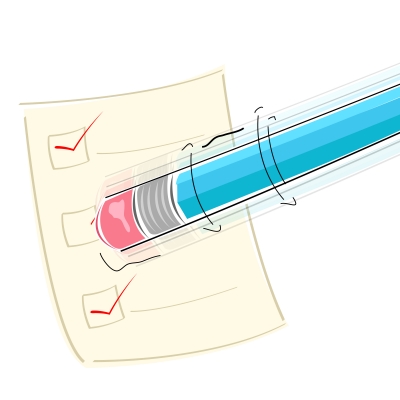Lots of people are dealing with bad credit. (No judgments here!)
You could have credit issues for a wide variety of reasons:
Maybe you made some bad decisions…
Maybe you were just unlucky…
Or maybe your credit report has errors that you don’t know about— a recent study shows that 1 in 4 Americans have had issues with their credit report.
But it’s not impossible to buy a home with bad credit — maybe tougher than normal, but it can be done. Here’s how:
1) Know your score.
First, you need to know where you stand in the credit world. Find someone you trust who can “pull” your credit. (I don’t usually recommend those “free credit check” websites — they usually require a subscription.)
Once you see what’s on your credit report, it might just mean paying off some credit cards or a medical bill — which could be the difference in qualifying for a mortgage.
===================================================
“37% of American adults admit they don’t know their credit score.”
(Source: FINRA Investor Education Foundation, Sallie Mae,
TransUnion, Experian, U.S. Department of Housing;
http://www.statisticbrain.com/credit-score-statistics/)
===================================================
2) Find a loan officer.
If you already know someone in the business, great. If not, chances are a friend or colleague knows a mortgage loan professional who can help. (I’m happy to refer you to one of my trusted colleagues.)
You definitely need a hard-working pro who you can trust. Their main responsibility is helping you find which loan programs and amounts that you qualify for and fit your budget.
3) Develop your plan of action.
If your credit issues need serious work and you don’t qualify for a mortgage loan right away, you might have to postpone your house purchase — but not forever.
Now that you know what your credit issues are, you can work towards paying off old debts and getting them removed from your credit report.
Also, there may be sellers who will consider working with you by way of asking for a larger down payment. This could require a multi-month plan to save cash for your down payment.
4) Think before you budget.
We’d all like a big mansion for the price of an efficiency apartment. But in reality, it’s crucial to look for a house that fits your budget.
That doesn’t mean you can’t have a nice house in a good neighborhood with exemplary schools and a beautiful park. It just means you need to ask yourself some very important questions:
- How much of a down payment can you afford?
- How much of a total monthly payment can you afford?
- What kind of term loan would you like (how many years — 15, 30, etc.)?
- What interest rate can you qualify for?
- What’s your loan-to-value ratio? (Divide mortgage loan amount by the fair market of the home value.)
Ex.: A $150,000 loan on a home appraised at $200,000 = an LTV of 75%.
Note: Most mortgage loans with an LTV that’s more than 80% require private mortgage insurance. - What can you afford to pay in yearly property taxes?
- What can you afford to pay for yearly property insurance?
|
Try the “How Much Can You Afford?” calculator from “Freddie Mac” here. (Freddie Mac is the Federal Home Loan Mortgage Corporation.) |
Bad credit? Mediocre credit? Good credit? Excellent credit? Whatever your score, I know how to help you find your next home.
Call me at 267.566.3448 or email me at shannon.rubin1@gmail.com today!
© 2013 by Shannon Rubin.
